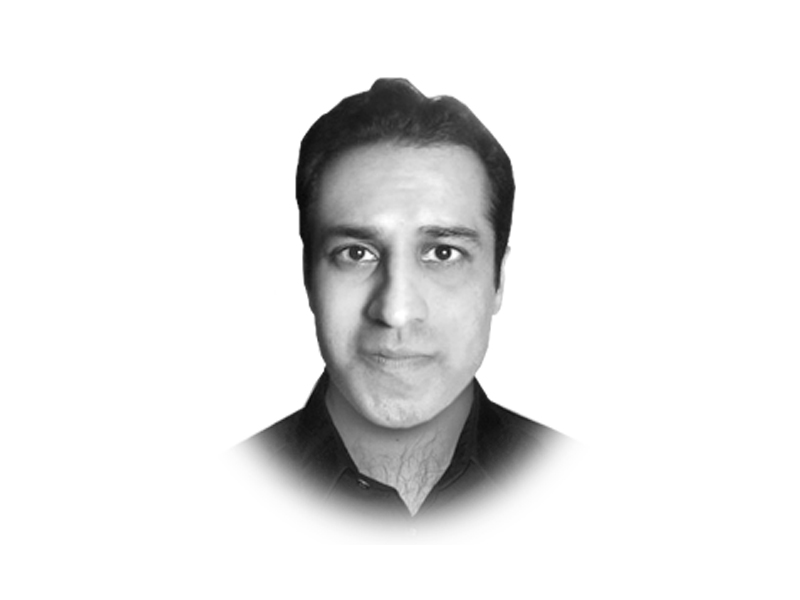
The young woman’s attempt to be many things to many people is no easy feat. It is, in fact, one of her strengths. Malala — with her father’s guidance — aims to leverage her status as a global symbol to produce change in Pakistan and beyond. The change she seeks is universal education for girls and boys.
Sadly, the sexagenarian was not the teenager’s sole critic that week. Indeed, his defensiveness seems to be representative of a sizable number of Pakistanis who appear to be confused about their role in their own country, and their country’s role in the world. We see this conflict in debates over dual nationality, ethnic identity and foreign policy. There is, for example, often a resentment and mistrust of Pakistanis and persons of Pakistani origin who live abroad — especially those who are succesful. And this has produced a closing of the Pakistani mind and a reactionary, hypernationalistic mindset representing a critical, overly vocal mass that, thankfully, has not yet become a majority.
The spirit of Malala’s UN address offers an antidote to this dangerous insularity. As political rhetoric, her speech was artful. She displayed her many selves before the gathering. Malala mentioned the Holy Prophet (pbuh), the Quaid-e-Azam, Bacha Khan, Gandhi, Mother Teresa and Mandela as sources of inspiration. With this variety, we saw Malala the Muslim, Malala the Pakistani, Malala the Pashtun, Malala the South Asian, Malala the young woman, and Malala the global citizen. Instead of situating herself in a single camp, Malala has embraced them all. And the central message of her campaign is one that should be acceptable to them all.
Malala’s peers, the current generation of young Pakistanis, must, too, learn to match their love for the country with a cultural dexterity that allows them to communicate with a global audience and be part of something bigger. They have a responsibility to not only build the Pakistan their forefathers failed to build, but also contribute to a global conversation and to causes that extend far beyond the borders of Pakistan. Doing so would not make them any less Pakistani or Muslim. Instead, it would amplify their sense of humanity and give them a taste of what the competition is like elsewhere.
That taste would be quite bitter. Take South Korea, for example, where families spend $17 billion a year on tutoring services for students as entry into universities there is fiercely competitive. Its world class educational institutions and reverence for education being deeply embedded in the culture have helped drive South Korea from a poor, agricultural society to a G-20 member and a manufacturing and technological powerhouse. With a poor record of education, especially in the case of girls, Pakistan is a long way from developing its own Hyundai or Samsung. Simply put, Pakistan cannot succeed in the global economy when too many of its girls are pulled out of school upon puberty or when so many young women attain medical degrees, but are only allowed to make use of them in the rishta market, instead of the labour market.
Rather than causing defensiveness, Malala’s rise to international prominence should give Pakistanis a sense of pride. She, like many of her compatriots, has withstood the test of adversity to emerge as an amazingly strong human being. But at the same time, the case of Malala should inspire Pakistanis to look within and measure where Pakistan really stands when it comes to its aspirations for itself, in comparison with the rest of the world.
Over the last 30 years, nearly 700 million people have been lifted out of poverty worldwide. The East is experiencing a boom in human and financial capital unseen in centuries. There are many models of reform to learn from. But, for Pakistan to exploit this wealth of knowledge, it must develop greater honesty, humility and literacy. And it must shed its defensiveness and misplaced pride.
Published in The Express Tribune, August 8th, 2013.
Like Opinion & Editorial on Facebook, follow @ETOpEd on Twitter to receive all updates on all our daily pieces.
COMMENTS (8)
Comments are moderated and generally will be posted if they are on-topic and not abusive.
For more information, please see our Comments FAQ



1732263441-0/BeFunky-collage-(81)1732263441-0-165x106.webp)
1732263755-0/musk-(3)1732263755-0-165x106.webp)







My belief is we are not discussing America or Gordon Brown.We are taking about Malala and what she stands for.That some powers are using her for their ulterior motives does not diminish her stature.America,UN and politicians all over the world do not always act with pious motives.But that should not distract us from the merits of Malala.
what nonsense article!
The disease has expanded far beyond the 'the closing of the Pakistani mind'. Read R. Reilly's book: 'The closing of the Muslim mind'.
@C.M.Sarwar: You wont be shocked if you read foreign newspapers and the comments local people leave underneath. You will probably won't find them equally self-centered and harsh as you have experienced. Its not only a particular segment in Pakistan who think that this was an orchestrated incident. You might be shocked to hear the sort of theories Westerners have come up with and how they thrash their politicians for taking advantage of this incident. They brand them as hypocrite, for instance why Gordon Brown would stand side by side to Malala at UN and praise her courage whilst his country's soldiers are busy killing innocent children and women in the Middle East and Afghanistan.
Has anyone noticed? Gandhi is the odd man out from those mentioned in this article. All the others were in some sense influenced by Gandh'si thoughts and actions (even Jinnah, though in a contrarian way).
Rgds
@C.M.Sarwar:
I agree with you and don't believe in targeting Malala either, but the reason why there are so much mistrust and rounds of conspiracy theories is the following case from 1990.
http://en.wikipedia.org/wiki/Nayirah_(testimony)
Just like Malala , Nayirah was also given too much attention and the result was murder of 100s of 1000s of innocent Iraqis. Presently no one talks about Malala Day in countries like Afghanistan, Iraq, Libya, Syria or Latin America. USA shamelessly invaded Iraq by spreading rumours against Saddam Hussain regime and stories about brutality of Iraqi soldiers in Kuwait. And it's crystal clear that Saddam was thousand times better than any American president when it comes to stability and progress of Iraq. And White House has no right to meddle in other countries' affairs when they don't know about the ground realities over there. During this year they also tried to portray (Late) Hugo Chavez in a negative light despite the fact that the latter was loved by his nation/people.
So the question remains that how can we trust United States after it's aggressive policies for past 20 years. Even in Pakistan, they backed a person like Zia ul Haq and supported the judicial murder of Zulfiqar Ali Bhutto.
Malala Yousafzai is doing a wonderful job but for some she has become an icon , a symbol for West's fear and hatred of Islamic way of life.